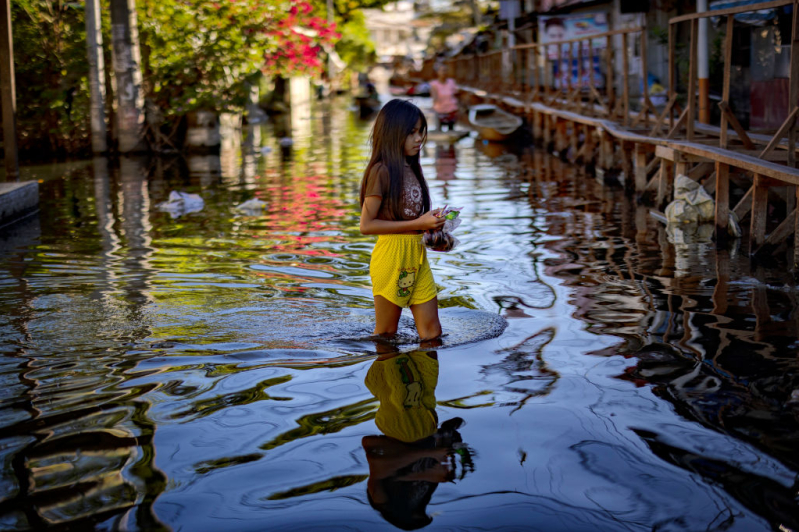
The Philippines remains one of the world’s most disaster-prone countries, with floods posing the gravest and most frequent threat, according to the recently published WorldRiskReport 2025. The findings come as the country has seen nationwide protests against corruption and church-led calls for transparency in the government’s flood-control projects.
The annual report, published by Bündnis Entwicklung Hilft and the Institute for International Law of Peace and Armed Conflict, ranked the Philippines among the nations most exposed to natural disasters. It emphasized that “floods are the most frequent and most devastating natural hazard worldwide,” causing more loss and damage than any other weather-related disaster.
The report said the Philippines’ geographical location and high social vulnerability continue to make it highly susceptible to flooding. It warned that dense urbanization, poverty, and climate-related rainfall patterns amplify the risks to communities nationwide.
“Flood disasters affect more people worldwide than any other natural hazard,” the report stated, noting that tropical countries like the Philippines face growing danger due to heavier rainfall, sea-level rise, and more intense storms. It urged national and local governments to “improve flood risk reduction, preparedness, and preventive investments” rather than relying solely on emergency response.
The WorldRiskReport 2025 also stressed that effective flood mitigation requires more than physical infrastructure. It called for a multi-dimensional approach that includes “social, ecological, and organizational measures” such as environmental conservation, early warning systems, and public awareness programs.
The report’s release follows weeks of public outcry over corruption allegations in the government’s flood-control projects — scandals that church leaders have denounced as a “moral abomination.” The controversy, which surfaced after investigative reports revealed large-scale misuse of funds, has fueled protests and renewed scrutiny of infrastructure spending, as previously reported by Christian Daily International.
Christian leaders have warned that corruption in flood-control efforts not only wastes public money but also puts lives at risk.
The Church Leaders Council for National Transformation, which includes Catholic and evangelical leaders, said in a declaration published on social media on Sep. 5 that the revelations in recent Senate hearings showed a “harrowing pattern of graft.”
They lamented that the diversion of resources meant to protect the public from floods reflects “a deeper crisis of conscience” within the nation’s leadership and called for repentance, transparency, and justice. Corruption is “a sin against both God and neighbor,” the group stated.
Later in September, Christian leaders were among the organizers of the Trillion Peso March, a nationwide mobilization against graft and misuse of public funds. They called the participation of tens of thousands of peaceful protesters “a miracle” and urged Filipinos to sustain the momentum for accountability.
“The people’s awakening is itself a work of grace,” one church leader said during the rally, emphasizing that moral renewal must accompany political reform.
Faith-based groups have urged the government to restore public trust by conducting independent audits of flood-control projects and ensuring that infrastructure spending genuinely serves vulnerable communities.
The WorldRiskReport 2025 also highlighted that resilience depends not only on infrastructure but also on good governance and public participation. Experts said flood preparedness is a shared responsibility among governments, civil society, and international partners.
“Reducing flood risk is a global task,” the report stated, adding that sustainable adaptation requires long-term investments that integrate infrastructure, social protection, and environmental stewardship.





